Gazette 31 - April-June 2016
Contents
Just published...
Current programme developments
Resources published about the ECML
National developments
Professional Network Forum of the ECML: forthcoming events
Council of Europe developments
Recent EU and OECD publications
Quick links
Just published...
"Learning through languages – Promoting inclusive, plurilingual and intercultural education" (2012-2015): new ECML publications and websites now available
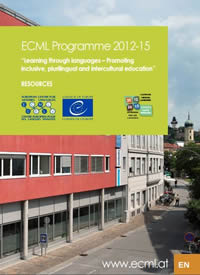
The results of 14 projects from the Learning through languages programme (2012-2015) are now available online. A summary of these rich resources and websites is presented in the brochure below, offering a brief description of each resource, including the key target audience; the languages in which each resource is available; and the thematic area on the ECML website where each resource has been located. Over the coming weeks the results from each of the projects will also be showcased individually on the ECML website.
Your feedback on these resources is much appreciated – a survey on each of the websites enables users to share their views on these new outputs with the ECML.
Focus on
Sign languages and the Common European Framework of References for Languages (CEFR) – Descriptors and approaches to assessment
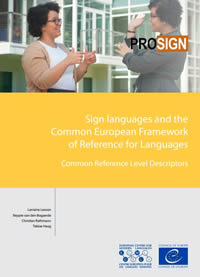
Authors: Lorraine Leeson, Tobias Haug, Christian Rathmann, Beppie van den Bogaerde, in cooperation with Moscow State Linguistic University
This resource establishes European standards for sign languages for professional purposes in line with the Common European Framework of Reference for Languages (CEFR) and provides an overview of assessment descriptors and approaches.
The website contains definitions of CEFR proficiency levels for sign languages, videos in International sign and links to related projects and activities, an assessment cycle for language proficiency in sign languages, ideas for making good use of the CEFR, as well as a glossary.
Target users: teachers and teacher trainers, curriculum developers in tertiary educational environments, university level educators and International sign.
Plurilingual and intercultural competences – Descriptors and teaching materials
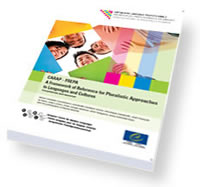
Authors: Anna Schröder-Sura, Ildikó Lőrincz, Michel Candelier, Petra Gilliyard, Daryai-Hansen
Associate partners: Jean-François De Pietro, Danièle Moore
FREPA National Networks disseminate the descriptors and teaching materials developed within the Framework of Reference for Pluralistic Approaches to Languages and Cultures (CARAP/FREPA) to support plurilingual and intercultural education at all levels.
The website includes the Framework of Reference for Pluralistic Approaches to Languages and Cultures (CARAPP/FREPA), country specific information on FREPA and on related networks in more than 20 national languages, a training calendar in the ECML member states, an online teaching materials database, as well as a training kit for teachers.
Target users: teachers and teacher educators, minority and majority language education professionals, as well as networks and associations working in the area of plurilingual and intercultural education.
Information brochure of the ECML – Revised version
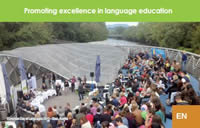
Revised version (May 2016): English
New programme flyer “Languages at the heart of learning” programme (2016-2019)
ECML project glossaries 2008-2015
 Overview of 26 glossaries in English, French and/or German.
Overview of 26 glossaries in English, French and/or German.
Topics covered: Empowering language professionals, CLIL, European Language Portfolio, Evaluation, Migrant education, Mobility, Plurilingual education, and ICT.
Current programme developments
"Language/s of schooling" and "Early language learning": take part in the ECML online consultations!
 The ECML has launched online consultations on two key areas in language education across Europe and beyond: The language/s of schooling and Early language learning. The results of these consultations will feed into think tanks on each topic, where experts will come together to examine the responses. They will propose future ECML initiatives to address these major challenges. By taking part in these consultations you are making an important and valued contribution to improving the quality of language education.
The ECML has launched online consultations on two key areas in language education across Europe and beyond: The language/s of schooling and Early language learning. The results of these consultations will feed into think tanks on each topic, where experts will come together to examine the responses. They will propose future ECML initiatives to address these major challenges. By taking part in these consultations you are making an important and valued contribution to improving the quality of language education.
Action Research Communities for Language Teachers – ECML workshop on 10-11 November 2016
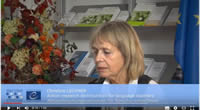 Action Research Communities for Language Teachers is a tremendous opportunity to bring together language teachers and teacher educators interested in developing their practice through action research. ARC will be a meeting point where action research experiences in the ECML member states can be exchanged, newer approaches discovered and paths opened. The project will run from January 2016 until December 2018. The ARC workshop at the ECML will take place from 10-11 November 2016 when we hope to welcome colleagues from ECML member states open to enhancing teaching practice through action research.
Action Research Communities for Language Teachers is a tremendous opportunity to bring together language teachers and teacher educators interested in developing their practice through action research. ARC will be a meeting point where action research experiences in the ECML member states can be exchanged, newer approaches discovered and paths opened. The project will run from January 2016 until December 2018. The ARC workshop at the ECML will take place from 10-11 November 2016 when we hope to welcome colleagues from ECML member states open to enhancing teaching practice through action research.
ECML Training and Consultancy for member states in Austria, Finland, Lithuania and Romania
 Finland: “Pluralistic approaches to languages and cultures: a framework of reference and teaching tools” – Training seminar for teachers of/in French in Finland (Turku, 15-16 April 2016)
Finland: “Pluralistic approaches to languages and cultures: a framework of reference and teaching tools” – Training seminar for teachers of/in French in Finland (Turku, 15-16 April 2016)
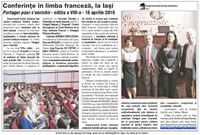 Romania: 8th International Conference on the teaching of French as a foreign language “Share to enrich”: the contributions of FREPA/CARAP (Iasi, 16 April 2016)
Romania: 8th International Conference on the teaching of French as a foreign language “Share to enrich”: the contributions of FREPA/CARAP (Iasi, 16 April 2016)
 Lithuania: “Supporting local networks in using an electronic European Language Portfolio” – ECML training and consultancy activity on the methods of electronic portfolio (Vilnius, 26-27 April 2016)
Lithuania: “Supporting local networks in using an electronic European Language Portfolio” – ECML training and consultancy activity on the methods of electronic portfolio (Vilnius, 26-27 April 2016)
 Austria: Workshop on "Romani as a minority language in formal education in Austria" (Graz, 12 May 2016)
Austria: Workshop on "Romani as a minority language in formal education in Austria" (Graz, 12 May 2016)
Resources published about the ECML
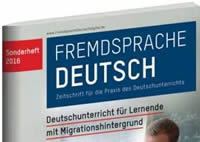 Haataja Kim, Wicke Rainer E. (2016), Fremdsprache Deutsch Heft 54 (2016), Fach- und sprachintegriertes Lernen (CLILiG), Zeitschrift für die Praxis des Deutschunterrichts. (Article available in German)
Haataja Kim, Wicke Rainer E. (2016), Fremdsprache Deutsch Heft 54 (2016), Fach- und sprachintegriertes Lernen (CLILiG), Zeitschrift für die Praxis des Deutschunterrichts. (Article available in German)
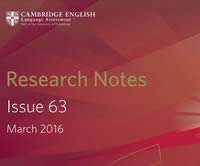
Cambridge English Research Notes no. 63 "European projects 2015-2016"
The focus in this issue is collaboration with European projects, such as the European Commission’s 2015 "Study on comparability of language testing in Europe" and the recent updating of the CEFR's illustrative descriptors.
In the article "Learning through languages’ conference of the European Centre for Modern Languages (ECML)" (p. 30-33), Waldemar Martyniuk, former Executive Director of the ECML, demonstrates how project findings can be shared and implemented in diverse contexts.

Focus : Ressources documentaires d’actualité – « Le numérique pour l’apprentissage des langues : outils, modalités, expérimentations » (April 2016)
The webography (p. 10) mentions the following ECML resources on technology and language education: Thematic Collection on “New media in language education”; projects “Digital literacy for the teaching and learning of languages”; “Use of ICT in support of language teaching and learning” (ICT-REV), “Using open resources to develop online teaching skills” (DOTS) and “Exploring cutting edge applications of networked technologies in vocationally oriented language learning” (E-VOLLUTION).
Focus is edited by the International Centre for Pedagogical Studies (CIEP), Sèvres, France.
 Articles and publications on the ECML and its work are collected in a dedicated web section. Please do not hesite to send us your contributions at your convenience (information@ecml.at). We will be delighted to promote them through the most appropriate channels.
Articles and publications on the ECML and its work are collected in a dedicated web section. Please do not hesite to send us your contributions at your convenience (information@ecml.at). We will be delighted to promote them through the most appropriate channels.
National developments in Albania, Austria, France, Ireland, Norway, Slovenia, "the former Yugoslav Republic of Macedonia" and Canada
Albania: Albanian Language Education Policy Profile – In partnership with the Council of Europe
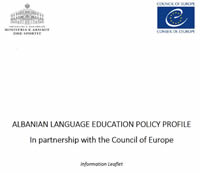 Albanian basic and high education are currently undergoing a thorough process of reform. Language education and foreign language communication represent key concerns.
Albanian basic and high education are currently undergoing a thorough process of reform. Language education and foreign language communication represent key concerns.
The Ministry of Education and Sport has engaged in a self-assessment process concerning the national language policy in accordance with the Council of Europe principles, with the Language Policy Unit of the Council of Europe offering expert assistance.
The resulting Language Education Policy Profile will take into account all languages on offer within the education system, the language of schooling, modern languages and minority languages and provide a clear picture of foreign language learning and teaching in Albania.
Austria: Language Forum 2016, national dissemination event, news from the ECML contact point
Language Forum 2016 (Graz, 9 May 2016)
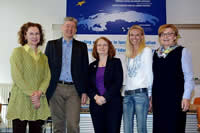
The Language Network Graz and the Representative of the City of Graz meet once a year to discuss relevant language issues. As municipal services have to adapt their ways of communication within multilingual societies, Graz looks to the experts in the Language Network and the ECML to exchange ideas for support that can be put into practice. Graz aims to develop Austria’s most modern city management and community service institutions. Effective and clear communication is a key factor within this goal.
Austrian Dissemination Event – Learning through languages (Graz, 26 April 2016)
 The Austrian Contact point, the Austrian Centre for Language Competence (ACLC), together with the Austrian Association of the ECML, held a national event to promote some of the outcomes of the ECML’s Learning through languages programme. The organisers identified three areas where there is a clear match between ECML projects, national projects and examples of good practice in Austria – Early language learning, Teaching the language of schooling in the context of diversity and Mobility. The ECML and the ACLC provided the participants with an overview of their services, offers and materials.
The Austrian Contact point, the Austrian Centre for Language Competence (ACLC), together with the Austrian Association of the ECML, held a national event to promote some of the outcomes of the ECML’s Learning through languages programme. The organisers identified three areas where there is a clear match between ECML projects, national projects and examples of good practice in Austria – Early language learning, Teaching the language of schooling in the context of diversity and Mobility. The ECML and the ACLC provided the participants with an overview of their services, offers and materials.
Newsletter of the Austrian Centre for Language Competence (ACLC)
France: Modern Languages Week, latest newsletters edited by CIEP
National event: "Modern Languages Week"
 The first ever "Modern Languages Week" was held in France on 9-13 May 2016. The Week aims to highlight all languages and linguistic diversity in and outside schools and institutions and to encourage language practice.
The first ever "Modern Languages Week" was held in France on 9-13 May 2016. The Week aims to highlight all languages and linguistic diversity in and outside schools and institutions and to encourage language practice.
CIEP – Latest newsletters

Latest newsletters "Veille et ressources documentaires" of the International Centre for Pedagogical Studies (CIEP) (available in French):
Norway: costs of inadequatly educating asylum seekers and refugees
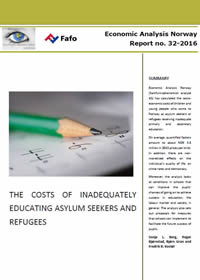 The Economic Analysis Norway Institute (Samfunnsøkonomisk analyse AS) has calculated the socio-economic costs of children and young people who come to Norway as asylum seekers or refugees receiving inadequate primary and secondary education. The analysis also looks at non-monetised effects on the individual’s quality of life and democracy. Moreover, the report explores how schools can improve the pupils’ chances of achieving success in education, the labour market and society in general, and highlights the importance of adequate language support.
The Economic Analysis Norway Institute (Samfunnsøkonomisk analyse AS) has calculated the socio-economic costs of children and young people who come to Norway as asylum seekers or refugees receiving inadequate primary and secondary education. The analysis also looks at non-monetised effects on the individual’s quality of life and democracy. Moreover, the report explores how schools can improve the pupils’ chances of achieving success in education, the labour market and society in general, and highlights the importance of adequate language support.
Slovenia: "Enriched Foreign language Learning Project (EFLLP)"
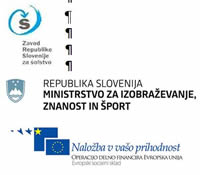 Katja Pavlič Škerjanc, project manager, presents the curriculum development project “Enriched Foreign Language Learning (EFLL)”, an initiative of the Slovenian National Education Institute (NEI). This involves systematic communication in foreign languages as a transversal key competence and, consequently, as a cross-curricular teaching and learning goal, using curriculum integration, team teaching and other forms of teacher collaboration to turn these complex curricular concepts into everyday school practice.
Katja Pavlič Škerjanc, project manager, presents the curriculum development project “Enriched Foreign Language Learning (EFLL)”, an initiative of the Slovenian National Education Institute (NEI). This involves systematic communication in foreign languages as a transversal key competence and, consequently, as a cross-curricular teaching and learning goal, using curriculum integration, team teaching and other forms of teacher collaboration to turn these complex curricular concepts into everyday school practice.
"The former Yugoslav Republic of Macedonia": Proceedings of the International Scholarly Conference “Language and culture interactions via translation and interpretation”

Doreana Hristova, “Plurilinguisme – Défi du 21e siècle” in: Tatjana Panova-Ignjatovik (editor in chief), Proceedings of the International Scholarly Conference “Language and culture interactions via translation and interpretation” / Actes de la Conférence internationale « Imprégnations interlinguistiques et interculturelles par le biais de la traduction et de l’interprétation » / Sammelband der internationalen wissenschaftlichen Konferenz « Sprachliche und kulturelle Interaktionen durch Übersetzen und Dolmetschen », Skopje: Faculty of Philology „Blaze Koneski“, 2015, p. 47-51, ISBN 978-608-234-037-1.
Canada: latest newsletter
 E-newsletter edited by the Official Languages and Bilingualism Institute (OLBI) / University of Ottawa, the national Contact Point for the ECML in Canada:
E-newsletter edited by the Official Languages and Bilingualism Institute (OLBI) / University of Ottawa, the national Contact Point for the ECML in Canada:
New ECML Governing Board members for Albania and Ireland
 The ECML is pleased to welcome Ms Daniela Tamo, University of Tirana, Department of English, Faculty of Foreign Languages (Albania), and Ms Maria Lorigan, Senior Inspector, Department of Education and Skills of Ireland who have taken up their functions as ECML Governing Board members.
The ECML is pleased to welcome Ms Daniela Tamo, University of Tirana, Department of English, Faculty of Foreign Languages (Albania), and Ms Maria Lorigan, Senior Inspector, Department of Education and Skills of Ireland who have taken up their functions as ECML Governing Board members.

Professional Network Forum of the ECML: forthcoming events
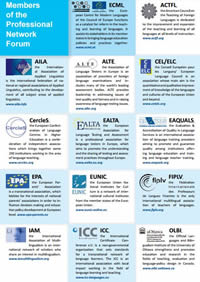 The Professional Network Forum of the ECML is formed of international associations and institutions that share common values and have overlapping expertise in the field of language education and assessment. Under the auspices of the ECML, the members of the Forum have agreed to share their know-how and have committed themselves to work together on areas of common interest in the service of language education.
The Professional Network Forum of the ECML is formed of international associations and institutions that share common values and have overlapping expertise in the field of language education and assessment. Under the auspices of the ECML, the members of the Forum have agreed to share their know-how and have committed themselves to work together on areas of common interest in the service of language education.
Members of the Forum: ACTFL, AILA, ALTE, CEL/ELC, CercleS, EALTA, EAQUALS, ECSPM, ECML/Council of Europe, EPA, EUNIC, FIPLV, IAM, ICC, OLBI.
Calendar of events of the Professional Network Forum: English – French
Council of Europe
Language policy
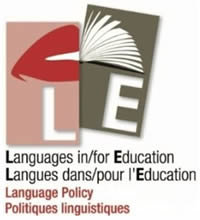 Report on the Intergovernmental Conference on ”The language dimension in all subjects: equity and quality in education” (Strasbourg, France, 14-15 October 2015): English – French.
Report on the Intergovernmental Conference on ”The language dimension in all subjects: equity and quality in education” (Strasbourg, France, 14-15 October 2015): English – French.
The conference was intended for those responsible for curriculum development and teacher training for any school subject.
Council of Europe: Extracts from Conventions, Recommendations, Resolutions and Reports (1968-2015) related to Education and Integration of adult migrants (1968-2015): English – French
Website of the Language Policy Unit: English – French
Regional and minority languages / Protection of national minorities: Cyprus, Croatia, Portugal, San Marino, Serbia, Slovak Republic, Spain, Sweden, Ukraine
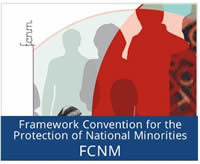 Latest developments on the implementation of the European Charter for Minority and Regional Languages:
Latest developments on the implementation of the European Charter for Minority and Regional Languages:
Latest developments on the implementation of the Framework Convention for the Protection of National Minorities:
Website of the European Charter for Minority and Regional Languages: English – French
Website of the Framework Convention for the Protection of National Minorities: English – French
Education
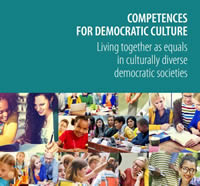 The importance of language education and the added value of the European Centre for Modern Languages (ECML), were highlighted at the Council of Europe Conference of Ministers of Education (Brussels, 11-12 April 2016). The focus of the conference was the Council of Europe flagship Framework of competences for democratic culture. This new educational tool for teaching democracy and democratic values sets out a series of 20 key competences needed to play an active role in democratic society and explains how these can be defined and measured.
The importance of language education and the added value of the European Centre for Modern Languages (ECML), were highlighted at the Council of Europe Conference of Ministers of Education (Brussels, 11-12 April 2016). The focus of the conference was the Council of Europe flagship Framework of competences for democratic culture. This new educational tool for teaching democracy and democratic values sets out a series of 20 key competences needed to play an active role in democratic society and explains how these can be defined and measured.
The publication on Curriculum development and review for democratic citizenship and human rights Education has been edited by the Council of Europe, UNESCO, the OSCE Office for Democratic Institutions and Human Rights and the Organization of American States (OAS) in order to support their member and participating states’ commitment to fostering citizenship and human rights education and improving access to quality education for all.
 Education at the Council of Europe – Skills and qualifications for life in democracy: Rooted in the European Cultural Convention, the mission of Directorate of Democratic Citizenship and Participation is to develop democracy, human rights and the rule of law through education and youth policy and practice.
Education at the Council of Europe – Skills and qualifications for life in democracy: Rooted in the European Cultural Convention, the mission of Directorate of Democratic Citizenship and Participation is to develop democracy, human rights and the rule of law through education and youth policy and practice.
 The Council of Europe Education Department recently published a series of factsheets on education: recognising refugees’ qualifications; linguistic integration of adult migrants; bullying; teaching controversial issues; failure at school; corruption in education; biased history teaching; Disenchantment with democracy.
The Council of Europe Education Department recently published a series of factsheets on education: recognising refugees’ qualifications; linguistic integration of adult migrants; bullying; teaching controversial issues; failure at school; corruption in education; biased history teaching; Disenchantment with democracy.
Download the factsheets: English – French
Other developments
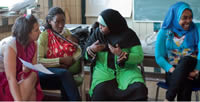 European countries have to prioritise migrant integration
European countries have to prioritise migrant integration
Guidelines of the Roma Youth Action Plan
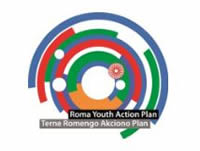
The Guidelines of the Roma Youth Action Plan as adopted by the Joint Council on Youth in March were presented and discussed at the 11th meeting of CAHROM (Ad Hoc Ad Hoc Committee of Experts on Roma and Traveller Issues) held in Sofia from 26 to 29 April. The objectives are among others to strengthen Roma identity and raise awareness of Roma history and language. On 10-11 October 2016 a High Level Roma Youth Conference will be organised under the Slovakian Presidency of the European Union (1st July to 31 December 2016).
Educational and cultural networks of communities living abroad
 The PACE Culture Committee of the Council of Europe approved the report on “Educational and cultural networks of communities living abroad” on 19 April. The report addresses the need for involving the educational and cultural networks of diaspora communities to a much greater extent when framing national integration policies as they are essential in providing support to children and youth of the second and third generations. The paper also puts forward the idea of setting up national platforms to allow different ministries and specialised institutions to work transversally in the field of integration. (Read more here.)
The PACE Culture Committee of the Council of Europe approved the report on “Educational and cultural networks of communities living abroad” on 19 April. The report addresses the need for involving the educational and cultural networks of diaspora communities to a much greater extent when framing national integration policies as they are essential in providing support to children and youth of the second and third generations. The paper also puts forward the idea of setting up national platforms to allow different ministries and specialised institutions to work transversally in the field of integration. (Read more here.)
 "Democracy and equality – does education matter?"
"Democracy and equality – does education matter?"
The World Forum for Democracy 2016 (7-9 November 2016, Strasbourg, France) will focus on how education can help bridge the social divide and become a real asset for our diverse democracies. The Forum will discuss not only what Education can do for Democracy but also what Democracy can do for Education. Online registration for the Forum will open in September. The Forum is open to the public and participation is free of charge.
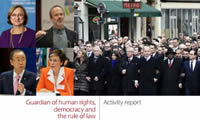 Council of Europe – Highlights 2015: Activity Report
Council of Europe – Highlights 2015: Activity Report
This publication presents the work carried out (also in the field of languages) in 2015 by the Council of Europe, highlighting its particular strengths and achievements.
 Council of Europe "State of Democracy, Human Rights and the Rule of Law in Europe – a security imperative for Europe"
Council of Europe "State of Democracy, Human Rights and the Rule of Law in Europe – a security imperative for Europe"
The latest annual report by the Secretary General of the Council of Europe, Thorbjørn Jagland, assesses the capacities of the member states to guarantee and enhance democratic security within their borders and, collectively, across the continent. The report draws on the Council of Europe’s capacity to monitor and evaluate performance in terms of democracy, human rights and rule of law and to identify remedies for shortcomings and provide assistance in their implementation. Chapter 5 – Inclusive societies and democratic citizenship – highlights the key role of quality education and language proficiency for integration.
Recent EU and OECD publications
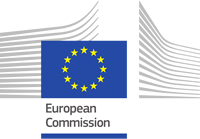 Donlevy Vicki / Meierkord Anja / Rajania Aaron, Study on the diversity within the teaching profession with particular focus on migrant and/or minority background, Brussels: European Commission, 2016.
Donlevy Vicki / Meierkord Anja / Rajania Aaron, Study on the diversity within the teaching profession with particular focus on migrant and/or minority background, Brussels: European Commission, 2016.
European Commission/EACEA/Eurydice, Recommended annual instruction time in full-time compulsory education in Europe 2015/16. Eurydice – Facts and figures, Luxembourg: Publications Office of the European Union, 2016.
 OECD, OECD Factbook 2015-2016: Economic, environmental and social statistics, Paris: OECD Publishing, 2016.
OECD, OECD Factbook 2015-2016: Economic, environmental and social statistics, Paris: OECD Publishing, 2016.
OECD, Trends shaping education, Paris: OECD Publishing, 2016.
English – French
Nusche,D., et al., OECD reviews of school resources: Austria 2016, Paris: OECD Publishing, 2016.
Quick links
Council of Europe
Council of Europe news
Directorate of Democratic Citizenship and Participation
European Day of Languages
European Centre for Modern Languages (ECML)
Language Policy Unit
European Charter for Regional or Minority Languages
Pestalozzi Programme
Stay connected with the ECML
News on the ECML portal
ECML on Facebook
ECML on Twitter
ECML activities 2016
All issues of the European Language Gazette
Not interested anymore? Click here to unsubscribe.
European Centre for Modern Languages of the Council of Europe
Promoting excellence in language education
Centre européen pour les langues vivantes du Conseil de l´Europe
Pour l’excellence dans l’éducation aux langues
A-8020 Graz, Nikolaiplatz 4
T +43 316 323554-20
F +43 316 323554-4
www.ecml.at
Follow us on  Facebook
Facebook  Twitter
Twitter